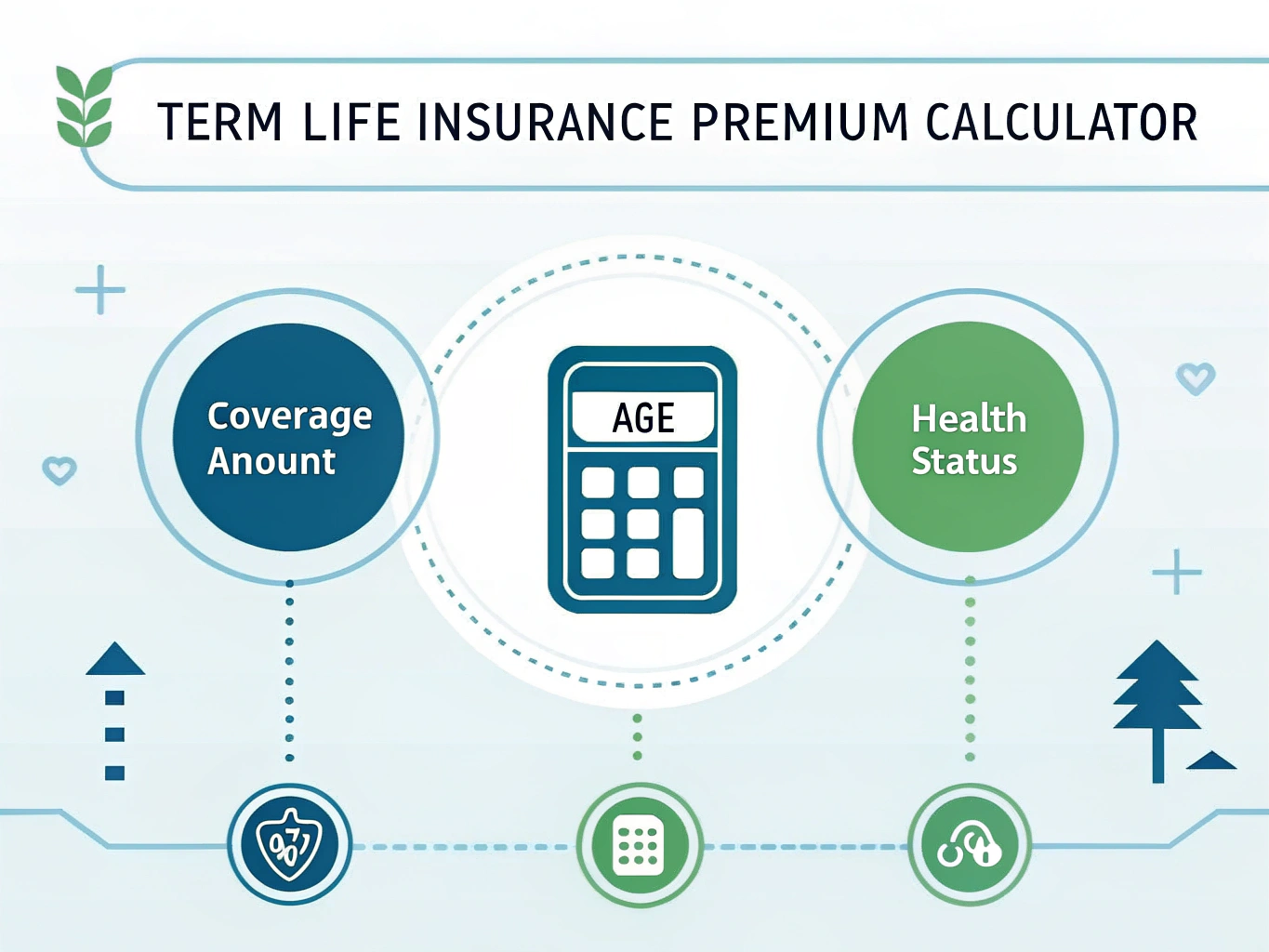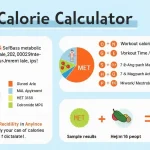Term Life Insurance Premium Estimator
Is this tool helpful?
How to Use the Term Life Insurance Premium Estimator Effectively
This tool calculates your estimated monthly premium for term life insurance based on three simple inputs. Follow these steps:
- Coverage Amount ($): Enter the total amount of life insurance coverage you want. For example, try $300,000 or $1,200,000.
- Age: Input your age between 18 and 80. Examples include 28 or 60.
- Health Classification: Select your current health status:
- Preferred: You are in excellent health without serious medical issues.
- Standard: You have average health with controlled conditions.
- Substandard: You have multiple health concerns or higher risk factors.
What Is the Term Life Insurance Premium Estimator and How It Helps You
The Term Life Insurance Premium Estimator provides immediate estimates for monthly premiums based on your coverage needs, age, and health status. It uses actuarial data from the Society of Actuaries (SOA) to calculate rates tailored to your profile. By providing quick and personalized premium figures, this calculator helps you:
- Understand how different coverage amounts affect your monthly cost
- See how your age influences premium rates
- Evaluate the impact of health classifications on pricing
- Plan financially with realistic premium expectations
This calculator requires no personal data submission, ensuring your privacy while helping you compare multiple insurance scenarios efficiently.
Understanding How the Premium Calculation Works
The premium estimate is based on a precise actuarial formula that incorporates mortality rates from the SOA tables, adjusted for health status and industry loading. The base calculation follows this formula:
Key Components Explained
- Face Value: The total dollar amount of insurance coverage you want.
- Base Mortality Rate: Age-specific death rate derived from SOA tables, increasing as you get older.
- Health Factor: Multiplier based on your health classification:
- Preferred: 0.8 multiplier (20% discount)
- Standard: 1.0 multiplier (baseline)
- Substandard: 1.5 multiplier (50% increase)
- Loading Factor: An industry-standard factor (2.5) to cover additional costs and profit margin.
Example Calculations to Illustrate Premium Estimates
Example 1: Young Adult with Preferred Health
Jessica is 27 years old and in excellent health (Preferred). She wants $500,000 coverage.
- Base Mortality Rate: Approximately 0.000738 (age 27)
- Health Factor: 0.8
- Annual Premium: $500,000 × 0.000738 × 0.8 × 2.5 = $738
- Monthly Premium: $738 ÷ 12 = $61.50
Example 2: Middle-Aged Individual with Substandard Health
David is 55 years old with substandard health and wants $1,000,000 coverage.
- Base Mortality Rate: Approximately 0.002851 (age 55)
- Health Factor: 1.5
- Annual Premium: $1,000,000 × 0.002851 × 1.5 × 2.5 = $10,690
- Monthly Premium: $10,690 ÷ 12 = $890.83
Benefits of Using This Term Life Insurance Premium Calculator
- Instant premium estimates based on your inputs, no personal info required
- Clear comparison of premiums for various coverage amounts and health profiles
- Helps you see the financial impact of aging and health changes on premiums
- Supports better insurance planning and budgeting decisions
- Allows testing different scenarios quickly to find what fits your needs
How to Use the Premium Estimator for Smart Insurance Planning
Coverage Amount Planning
Use the calculator to:
- Estimate premiums for coverage levels that match your financial goals
- Adjust amounts as your income, debts, or family needs change
- Understand how increasing coverage affects your monthly costs
Considering Health Classification Effects
You can:
- See savings from maintaining or improving health status
- Compare premiums across Preferred, Standard, and Substandard categories
- Plan ahead for potential health-related premium changes
Long-Term Financial Planning
This estimator helps you:
- Project premium changes as you age
- Consider policy term lengths that align with your financial commitments
- Evaluate strategies such as policy laddering for balanced coverage
Frequently Asked Questions About Term Life Insurance Premiums
What factors determine my term life insurance premium?
Your premium depends mainly on:
- Your age when you start the policy
- The coverage amount (face value) you choose
- Your health classification based on medical risk
- Mortality rates from actuarial data
How does my health classification affect my premium?
Health status influences pricing by applying multipliers:
- Preferred status yields about 20% lower premiums than Standard
- Substandard status increases premiums by approximately 50%
- Regular health check-ups can help you maintain or improve your classification
Can I update my coverage amount later on?
Yes, you can adjust coverage to fit changing circumstances. Use the estimator to:
- Evaluate premiums for new coverage levels
- Plan coverage updates as your financial needs evolve
- Compare cost implications before making decisions
How do I determine the right coverage amount?
Consider these when choosing coverage:
- Your current annual income multiplied by 10 to 15 years
- Outstanding debts such as mortgages and loans
- Future expenses like children’s education
- Final costs including funeral expenses
Additional Tips for Managing Term Life Insurance Premiums
Planning Your Policy Duration
- Match coverage term length with your financial responsibilities
- Reassess coverage needs at different life stages
- Plan for transitions in coverage as your situation changes
Strategies for Managing Premium Costs
- Budget for higher premiums as you age
- Maintain good health to qualify for better rates
- Review and adjust your coverage and premiums regularly
Important Disclaimer
The calculations, results, and content provided by our tools are not guaranteed to be accurate, complete, or reliable. Users are responsible for verifying and interpreting the results. Our content and tools may contain errors, biases, or inconsistencies. Do not enter personal data, sensitive information, or personally identifiable information in our web forms or tools. Such data entry violates our terms of service and may result in unauthorized disclosure to third parties. We reserve the right to save inputs and outputs from our tools for the purposes of error debugging, bias identification, and performance improvement. External companies providing AI models used in our tools may also save and process data in accordance with their own policies. By using our tools, you consent to this data collection and processing. We reserve the right to limit the usage of our tools based on current usability factors.







